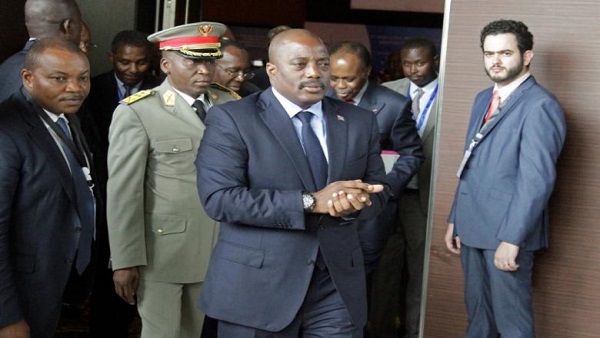Democratic Republic of Congo’s presidential election, slated for late this year to choose a successor to President Joseph Kabila, could be delayed because of persistent militia violence in central Congo, the election commission president said on Friday.
The elections were originally supposed to have been held by November 2016 but were postponed when the government said it needed more time to register voters. Many analysts say further delays could rekindle violent anti-Kabila protests that resulted in dozens of deaths last year.
Under a deal struck in December, a presidential election to replace Kabila, in power since 2001, must take place by the end of this year. Kabila refused to step down at the end of his constitutional mandate on Dec. 19 to avoid a power vacuum in the absence of the vote.
In an interview in the capital Kinshasa, the president of Congo’s electoral commission (CENI), Corneille Nangaa, said the violence in the central Kasai region and other logistical constraints risked undermining the integrity of the vote.
“If we organise the election hastiliy without preparing what is necessary because we must stick to the date, we risk having non-credible elections and that will probably lead to violence,” he said.
Kabila’s opponents say he intends to repeatedly delay elections until he can organise a referendum to let himself stand for a third term, as his counterparts in neighbouring Congo Republic and Rwanda have done. Kabila denies that charge.
The December deal helped tamp down street protests but militia violence has surged in recent months, as armed groups exploit Kabila’s perceived lack of legitimacy, most notably in the Kasai region.
An insurrection there that first began last July has caused hundreds of deaths and displaced more than 1 million people, with thousands fleeing into neighbouring Angola.
Militiamen have ransacked six of the election commission’s headquarters in that region and beheaded three election workers, Nangaa said. As a result, enrollment operations have not yet begun in two provinces and parts of a third.
Nangaa said that while the elections slated for this year could technically be held without voting in those areas, “I don’t think we have much of a choice. The most important thing is to…pacify that area and enroll as we’ve done elsewhere.”
And even if enrollment in Kasai is completed by the commission’s July 31 target, Nangaa cast doubt on the feasibility of holding presidential, legislative and provincial elections together this year, as called for by the accord.
Conflicts in Congo between 1996-2003, mostly in the east, caused the deaths of millions of people, mainly from hunger and disease. Dozens of armed groups continue to fight over natural resources and prey on the civilian population.
Source: Reuters



